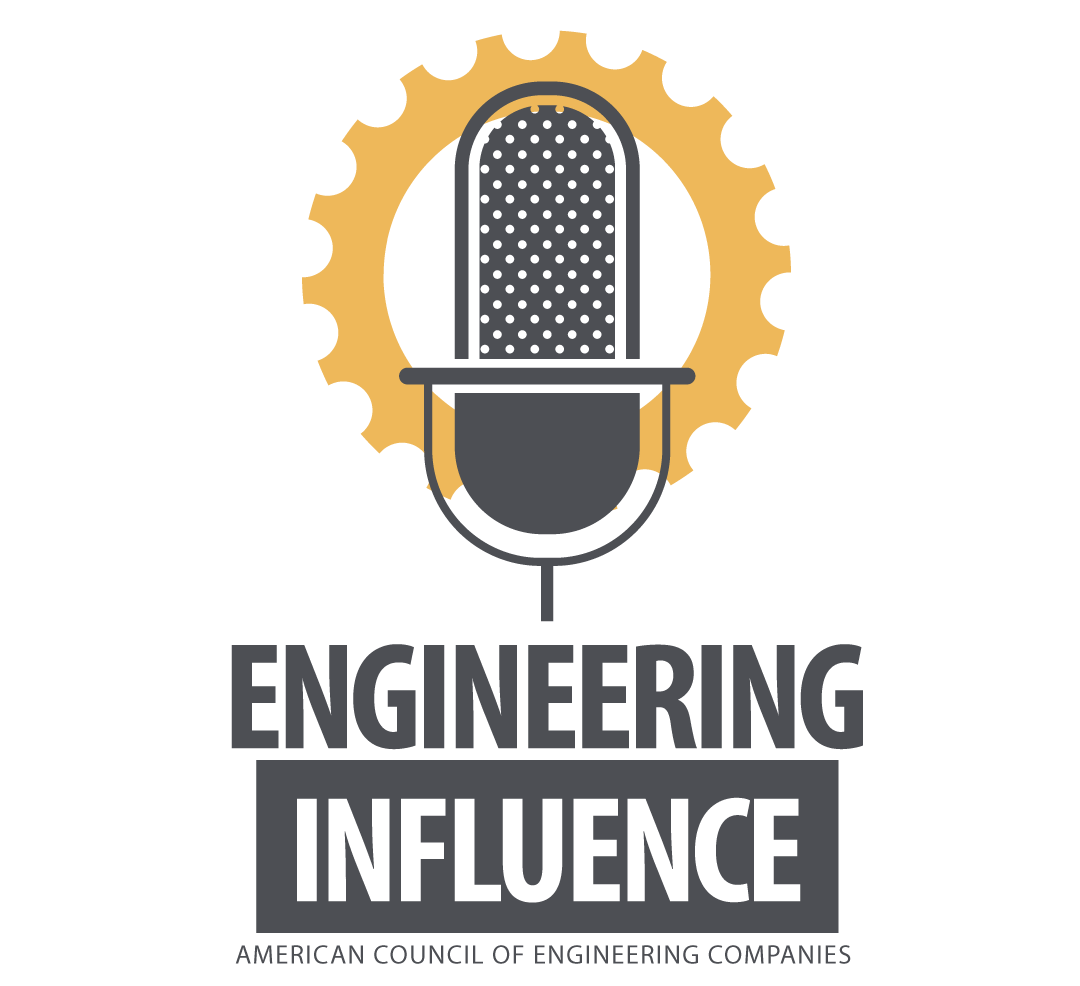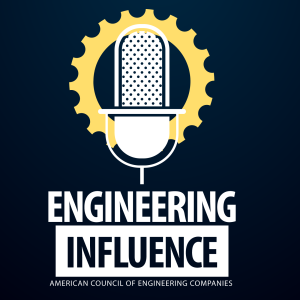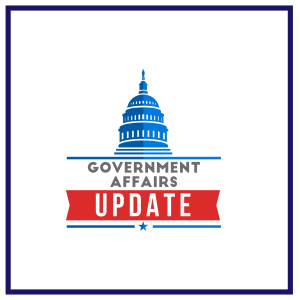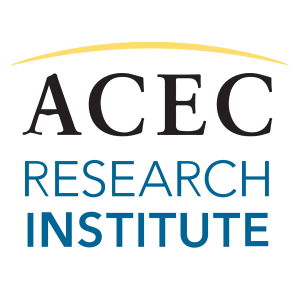
The Voice of the Business of Engineering
Engineering Influence is the official award-winning podcast of the American Council of Engineering Companies (ACEC).
ACEC is the trade association representing America's engineering firms; the businesses that design our built environment. Subscribe to the podcast for a variety of content ranging from interviews with newsmakers and elected officials to in-depth conversations on business trends, the economy, technology and what's next for the engineering and design services industry.
Visit us online at www.acec.org
Follow us on Twitter at @ACEC_National
ACEC reserves the right to moderate episodes on its channel and make editorial decisions on the inclusion or deletion of comments posted by listeners. Direct any questions to comms@acec.org.
Episodes

Monday Feb 22, 2021
ACEC Celebrate Engineer's Week 2021
Monday Feb 22, 2021
Monday Feb 22, 2021
The podcast welcomed Thea Sahr with Discover-e, the organizers of Engineer's Week to discuss how the event is going virtual in 2021.
Learn more about DiscoverE's full range of resources for Engineers Week and ways to promote engineering throughout the year on their website: http://www.discovere.org

Friday Feb 19, 2021
Friday Feb 19, 2021
Matt Reiffer and Katharine Mottley joined the podcast today to delve into ACEC's new online advocacy course: Effective Government Engagement at the Local, State and Federal Levels, which kicks off virtually on March 2.
The 5 session course being offered by ACEC's advocacy team will provide the tools firm leaders need to effectively advocate and communicate the interests of their businesses to elected officials at all levels of government. The sessions include:
Session 1: Federal Legislative Affairs: Where Do You Begin?
Session 2: Engagement in the Federal Regulatory Process
Session 3: Local Government: Engaging with Zoning Boards
Session 4: Effective State Legislative Engagement: Lobby Days, Recess Activities, and Virtual Meetings
Session 5: Using Communications Tools to Support Your Advocacy Efforts

Thursday Feb 18, 2021
Thursday Feb 18, 2021
The Private Markets Update welcomed ACEC's own Erin McLaughlin to the show joined by our guest, Danushka Nanayakkara-Skillington to discuss the forecast for the housing market.
Danushka is the National Association of Home Builder's Assistant Vice President for Forecasting and Analysis. She oversees the activities of the Forecasting & Analysis section of the Economics group which includes housing market analysis, industry surveys, developing and maintaining national, regional, long-term, and remodeling expenditures forecasts. Before being promoted to Assistant Vice President, she worked at NAHB as a Senior Economist, responsible for state and local analysis.
Visit the National Association of Home Builders website for more information.

Wednesday Feb 17, 2021
Wednesday Feb 17, 2021
The podcast welcomed Sabrina Kanner, EVP, Development, Design and Construction at Brookfield Properties onto the show to discuss her participation as a panelist during the ACEC Research Institute's roundtable on Building Density in the Post-Pandemic World. The roundtable took place as part of the Institute's ongoing Future of Engineering series, which can be found on the Institute's website.
Click here to view the Building Density in the Post-Pandemic World roundtable.

Tuesday Feb 16, 2021
Tuesday Feb 16, 2021
Mark Goodale, a principal at the management consulting firm Morrissey Goodale, came on the Engineering Influence podcast to discuss the current state of the engineering market, what firms can expect over the next year, and what steps they can take to prosper.
Goodale discussed these and other issues in the recent ACEC online class The Year After--Good, Bad or Just Plain Ugly, which is available on-demand here.

Friday Feb 12, 2021
Friday Feb 12, 2021
ACEC's VP of Political Affairs, Dave Bender, joined the show this week to discuss the ACEC/PAC.

Thursday Feb 11, 2021
Thursday Feb 11, 2021
Engineering Influence welcomed Krista Looza, Associate Principal and Structural Engineer with Buehler Engineering, Susan Ouellette, Director of HR with Keinschmidt Group, and Gary Brennan, President of Brosz Engineering. Each participated in ACEC's first ever multi-module course on Diversity and Inclusion - Strategies for Developing a Respectful, Diverse and Inclusive Workplace Culture. In this episode, our guests describe their experience with the course and tackling D&I issues in their own firms.

Friday Feb 05, 2021
Government Affairs Update for February 5th 2021
Friday Feb 05, 2021
Friday Feb 05, 2021
In today's Government Affairs Update, Steve Hall covers the week's happenings in Washington. This week, we discuss Secretary Buttigieg's confirmation by the Senate and the first moves towards budget reconciliation. We also cover the ongoing work the Advocacy department is doing on PPP loans and the ongoing effort to address the FAR Credits Clause, which is the subject of the latest ACEC Action Alert, which can be found here.





